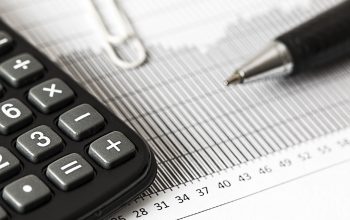If you can't pay your self-assessment bill to HMRC by January the 31st you should follow our advice and get...
As the saying goes, there are only two certainties in life: death and taxes. This doesn’t stop people from doing their best to avoid both. Whether through insolvency or not, attempting to get around a tax bill is never a good idea.
Tax Avoidance vs. Tax Evasion
While there’s an argument that large corporations who pay very little tax as a proportion of their revenue should pay more, HMRC can’t force them to pay tax they don’t owe. If the UK’s tax regime has rules which allow a large business (or any business) to legally pay less tax, then, whatever ones view on the morality of this, the business is almost certain to take advantage of those rules. This is tax avoidance and is perfectly legal.
Tax evasion, however, is an entirely different thing. Where the tax rules say that a business or individual owes tax to the Treasury, failing to pay that tax, and deliberately avoiding doing so, is tax evasion and HMRC is obliged to take action.
HMRC is the arm of the government with the duty and responsibility, amongst other things, for collecting tax from those who owe it. They have numerous options at their disposal when dealing with those who attempt to get away without paying the tax they’re legally obligated to pay.
What is a Deliberate Tax Defaulter?
As the name suggests, a Deliberate Tax Defaulter is someone who has been judged to have deliberately failed to comply with their tax obligations or who have made deliberate errors in their tax returns. The ‘deliberate’ aspect of this is open to interpretation.
One of the sanctions available to HMRC is the ability to publish details of deliberate tax defaulters, essentially ‘naming and shaming’ them. In 2009, the Finance act was amended and section 94 gave HMRC the power to publish the personal or business details of serious tax defaulters in specific circumstances.
What Details Are Published About Serious Tax Defaulters?
A simple search online will lead to list of deliberate tax defaulters on the government’s website. For both businesses and individuals, their name and address will be published along with the period of their default, the amount of tax they owe/owed and the penalties they’ve been charged because of it. Other information may also be published, most commonly details of alternate trading names.
In order to be included on the list of Serious tax defaulters, the business or individual must owe £25,000 (or more) from 2010 or later and HMRC must be satisfied that their failure to pay is a deliberate attempt to get out of paying their tax. Similarly, failing to take ‘reasonable care’ of one’s tax affairs may also be sufficient to merit inclusion on the list
Those caught deliberately avoiding paying tax may still be able to avoid the indignity of appearing on the list of serious tax defaulters if they own up or cooperate with the authorities once their default is discovered, pay what they owe with interest and any fines which are imposed. HMRC clearly hope that the threat of being named and shamed publically is sufficient incentive for people to get their tax payments up to date.
Get Help Before You’re in Tax Default – Prevention is better than cure
HMRC is usually the only creditor who has no choice about who owes it money and yet is often the first creditor to be left unpaid when businesses or individuals are struggling financially. But as an arm of the government, they have a wide array of powers to make sure they are paid what is owed to them and as such, it’s never a good idea to keep them waiting.
If you or your business are struggling to meet your tax obligations, it’s important to take action straight away. An HMRC debt is almost certain to get substantially bigger the longer it’s left, so speak to us for a free consultation and get advice on the best way forward.
Speak to us, we can help.



